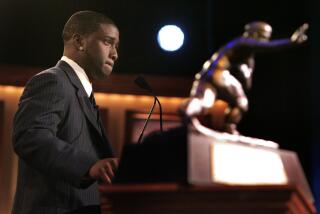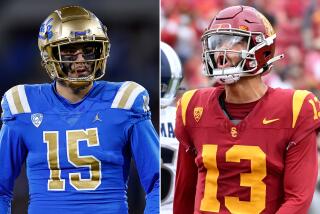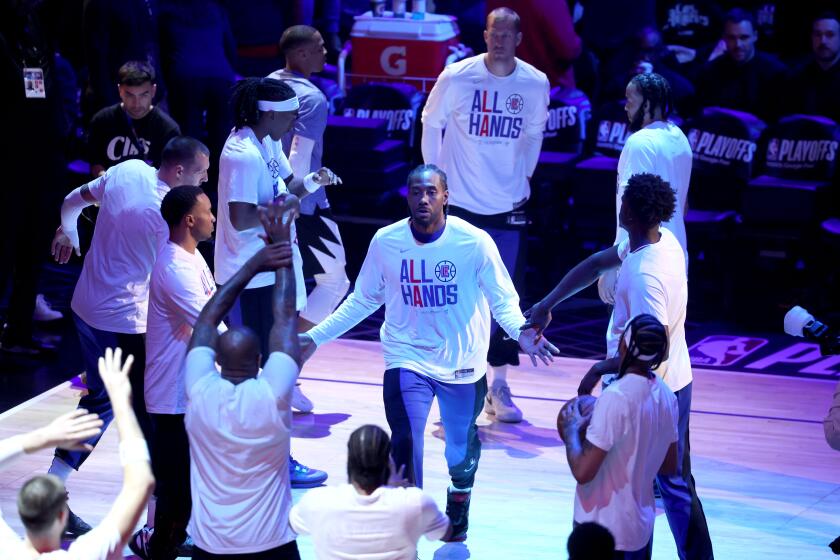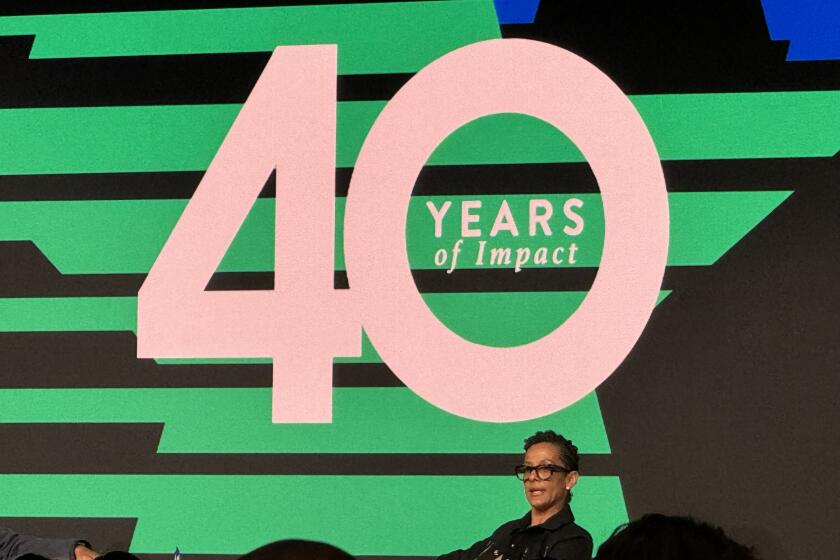Tattoo his name onto your memory
SAN ANTONIO -- Players and coaches at the Final Four wear white hats and black hats. They are painted in broad brush strokes.
Kansas wears the white hat in tonight’s NCAA title game, and Memphis wears the black.
Never mind that Kansas recruited Memphis stars Chris Douglas-Roberts and Derrick Rose too.
Or that Kansas guard Brandon Rush went to a prep school in North Carolina, just like a handful of Memphis players.
“I feel people judge us, and don’t really know us,” Douglas-Roberts said.
“But we’ve been dealing with it. But the biggest misconception has nothing to do with basketball. It’s us as people. They don’t really know us and they tend to judge based on how we look, how many tattoos or whatever. They don’t see the real people.”
Or, as he put it later:
“I’m pretty sure there’s a player on Harvard or Yale with a tattoo somewhere.”
The Douglas-Roberts of today is a little reminiscent of a well-spoken player for Nevada Las Vegas in 1990 and 1991. Not for his game, but in some of the things he says. That was Greg Anthony, who is at the Final Four working as a broadcaster for CBS College Sports Network this week.
Like Anthony was then, Douglas-Roberts, a 6-foot-7 guard who figures to be part of a key matchup with Rush, a 6-6 Kansas guard, is worth a second look.
For one thing, that tattoo on his neck?
The script “Judy” isn’t for a girlfriend.
“That’s my mother,” he said.
And the one on his arm?
“It is Psalm 37, Verses 1 through 3,” Douglas-Roberts said. “It is a lot of words, but basically it says to trust in the Lord and everything will be all right. Every time I shoot a free throw, I tap it three times, and it seems to be working, as you can see from my free-throw percentage.”
None of this is to say Douglas-Roberts is a saintly student-athlete, or anything else about the Memphis players, some of whom Douglas-Roberts said have done “stupid things.”
The point is, we don’t know them well enough to say. But Douglas-Roberts is a find, the sort of player you discover when you’re looking for somebody else.
That’s what happened to Coach John Calipari when he first saw the junior from Detroit on the recruiting trail.
“I’m watching this game,” Calipari said. “I keep seeing this skinny kid running half-speed. He just keeps getting balls in the basket.
“I start watching him, like his feel for the game, his ability to handle. He didn’t shoot it well, and had a body language that I said, ‘This kid’s body language isn’t great.’ Then I kept watching him. I said, ‘I love this kid’s game.’ I went to his coach and said, ‘I know I came to see this guy, but that’s the guy I want.’ He said, ‘You got the right one.’
“My challenge was to get him to defend better. The challenge for us and for himself is to improve his perimeter shooting, which he has. The last challenge is the motor. That, ‘I’m sprinting that floor. I’m cutting off cuts. I’m never jogging.’ To play to that level. When he hits that, you’re going to see that he is as good as anybody in the country.”
He has been pretty good as it is, a first-team All-American averaging 18 points a game with terrific slashing ability and a 54% shooting percentage. And ahem, 71.4% on free throws, making him the Tigers’ best from the line.
Calipari chides him, as he chides all his players.
“He curses,” Douglas-Roberts said, more frankly.
“I get on Chris Douglas because I want his motor to run like Rip Hamilton’s,” Calipari said. “When his motor runs, it’s ridiculous. But he doesn’t always have the motor running. So I’m challenging him to do it.”
The junior from Detroit has evolved during his time in Memphis. On his recruiting trip to Memphis, he went to the National Civil Rights Museum at the Lorraine Motel, the site of Martin Luther King’s assassination in 1968.
“I just like learning new things. And some of the things in there, I had no idea,” Douglas-Roberts said.
Once he was in school at Memphis, an advisor pointed him toward courses in African American studies.
Then, last week, the team got a visitor in town for the 40th anniversary of King’s slaying.
“We didn’t even know he was coming. We have an academic advisor named Jesse, and so when Coach told us that Jesse was coming, we all looked at each other and thought, ‘Oh, no, who didn’t go to class?’ ” Douglas-Roberts said.
“Then Jesse Jackson walked in, and it was like, wow. He didn’t even talk basketball to us, but more about life and our education. It was great.”
It’s hard to know what the future holds for Douglas-Roberts or for any other of these players. His parents seemed to have a hunch, though, hence his hyphenated name.
“I guess they thought I was going to be something big, and my dad didn’t want to give up his name and neither did my mom, so they just gave me both,” Douglas-Roberts said.
In Memphis, they just call him CDR. And CDR calls it as he sees it.
He loves the Memphis offense that allows him to use his one-on-one skills, and said watching some other teams makes him “fall asleep.”
“We feel that half-court game is boring,” he said, and looked around at a room full of reporters and smiled a sly smile.
“And I know you guys do too.”
--
More to Read
Get our high school sports newsletter
Prep Rally is devoted to the SoCal high school sports experience, bringing you scores, stories and a behind-the-scenes look at what makes prep sports so popular.
You may occasionally receive promotional content from the Los Angeles Times.






